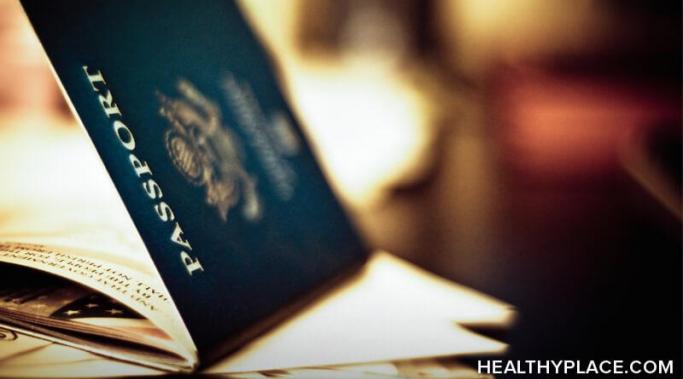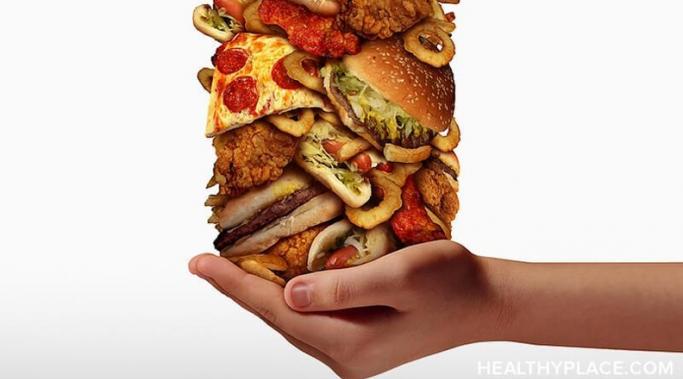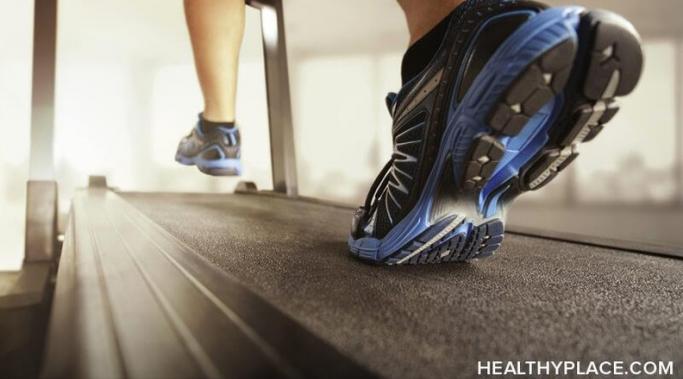I just returned from a two-week trip overseas to England, Scotland, and Ireland. I love to explore the beauty of this earth and immerse myself in all kinds of unique cultures, but if I am not careful, traveling will often coax my eating disorder back to the surface. While I do have quite an adventurous streak, I also tend to feel anxious when I deviate from my normal routine, which can open the door for a certain uninvited guest—otherwise known as my eating disorder—to hitch a ride on the trip. However, since I am not about to stop traveling, here are a few strategies I use in order to ensure this pesky eating disorder will not ruin my vacation.
Relapse Prevention
The phrase "clean eating" is often used in wellness circles to denote a preference for natural, organic foods over artificial, processed ingredients. At face value, this is undeniably beneficial. After all, the human body requires essential nutrients to function, many of which come from vegetables, fruits, and other whole foods. It's important to be mindful of this. However, I feel using the word "clean" to talk about eating habits is problematic. In extreme cases, I worry it could even influence eating disorder behaviors. In my humble opinion, clean eating is not healthy—it's a harmful trend with potentially serious consequences.
Several years ago, when I had just begun the work to heal from anorexia, my therapist often closed out our frequent sessions with the reminder: "Your secrets will keep you sick." It's been a long time since I have seen this particular therapist, but I still carry her mantra with me. Eating disorders thrive on secrecy, shame, and silence—but honesty is the best weapon I have to combat eating disorder temptations when they creep back to the surface.
Eating disorder recovery during life transitions can present a real challenge. As this final stretch of 2021 rounds the corner and another new year looms on the horizon, the inevitability of transition is at the forefront of my mind. But while this idea of change can often bear a negative connotation and cause stress levels to escalate, the change itself doesn't always have to bring chaos, fear, anxiety, or upheaval into your actual lived experience.
Binge eating at night is a problem for just about everyone who has the luxury of steady access to food, whether they are in eating disorder recovery or not. However, for those of us in recovery, these nighttime binges can be detrimental to our progress.
Exercise can be a great tool to help you through eating disorder recovery, but my experience has shown me the thin, blurry line between healthy exercise and over-exercise in eating disorder recovery. In recent weeks, the COVID-19 pandemic and my mental health fall-out has revealed just how much of my self-worth has been wrapped up in my workouts. It was a sobering realization and one I vowed to change.
I had no intention of being someone who unrolls a mat in a candlelit room and chants, "Namaste," with my palms entwined at heart's center, but this is me nonetheless—yoga is now part of my eating disorder recovery, and I am thankful for the conduit of healing it's become. I have a long, complicated—and, at times, unhealthy—relationship with exercise. I am also an intense, feisty, and energetic person by nature which means that my workouts often match this intensity, but one exercise that I never imagined I would feel such a profound, almost sacred connection to is yoga.
For those of us who have or have had eating disorders, the feeling of a full stomach can be an extremely disconcerting sensation. Sitting after a meal while feeling full can cause anxiety and guilt. I've been in recovery for nearly a decade and I still sometimes struggle with feeling full, but learning how to be okay with being full was an important step in my eating disorder (ED) recovery.
Loving yourself through an eating disorder relapse is important because, if you have experience with an eating disorder, then you know firsthand that the recovery process is not a linear route. Instead, it's full of detours and obstacles, forward motions and backward stumbles. Sometimes there are victories, but other times, a relapse can occur—and when it almost inevitably does, the question then becomes: How do you love yourself through that eating disorder relapse?
Why wouldn't exercise have a place in eating disorder recovery? There's no denying that bodies are designed for movement. In fact, exercise offers health benefits that we need in order to thrive, both physically and mentally. Being active helps us manage stress, boost our moods and feel more energized. It redirects our attention off social media or smartphones, so we can be mindful of how our breathing deepens, muscles contract and bodies function. When used for balance, enjoyment and wellness, exercise is a positive lifestyle choice. But for those of us recovering from eating disorders, exercise could turn into a compulsion.









